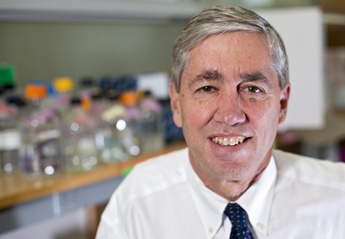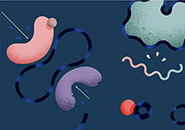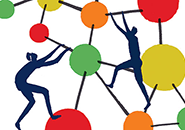
Scientific Discipline
Genetics, Medicine and Translational Research
Related Links
Host Institution
Yale University
Current Position
Dr. Lifton is also Sterling Professor of Genetics and Internal Medicine at Yale School of Medicine.
Current Research
Identifying Common Disease Pathways via Human Genetics
Research
Biography
Twenty years ago, when Richard Lifton first proposed using genetic methods to study the causes of high blood pressure, his approach was not uniformly accepted. Such a complicated condition, critics thought, would not lend itself to traditional genetic tactics, which try to link a disease to alterations in a single gene.
Since then, Lifton has proved his detractors wrong many times over. Lifton has identified more than 20 genes associated with blood pressure, cardiovascular disease, and bone density, and he has characterized mutations that cause either extreme hypertension (high blood pressure) or hypotension (low blood pressure) in people.
More significantly, he has shown that severe blood pressure problems can be caused by mutations in genes that regulate the amount of sodium chloride the kidney allows to flow into the blood. When these genes falter in severe hypertension cases, salt levels rise, blood volume increases, the heart pumps harder, and blood pressure surges. With excessive hypotension, the opposite occurs. Today, his findings have changed how doctors treat hypertension, which affects approximately 1 billion people worldwide and is the most prevalent cardiovascular disease risk factor.
At the time Lifton started looking for blood pressure genes, scientists and clinicians did not know if the brain, cardiovascular system, adrenal gland, or kidney was the primary source of the problem. Cardiologists tended to consider the heart or the vascular system as the blood pressure regulator. Others thought the adrenal gland hormone aldosterone, which regulates blood salt and potassium levels, was the master controller.
To better understand hypertension's pathophysiology, Lifton borrowed the concept behind classic fruit fly genetics and applied it to humans. Scientists would treat insects with mutagens and see dramatic effects in progeny wing shape or eye color and then find the gene that caused the altered trait. Since mutagenesis experiments cannot be performed in humans, Lifton instead sought the most extreme cases of severe blood pressure disease. A person with hypertension needing treatment has blood pressure readings above 140/90. But Lifton was interested in rare individuals with both very high and low measurements.
Physicians and scientists throughout the world have contacted him. "Today, people even find me on the Internet," he says. Lifton studies the families, determines inheritance patterns, takes blood samples, and ultimately localizes genes and mutations responsible for their conditions. He estimates he has collected blood samples from more than 10,000 people.
"I always have been struck by how willing people are to participate in research when a disease runs in their families," Lifton said. "They know how the disease impacts their family and hope research might lead to benefits to future generations in their family and in others, too."
In 1994, Lifton first showed that a mutation in the kidney (in a sodium channel) could cause severe hypertension. "It was the first paper to demonstrate a mutation intrinsic to the kidney was critical for blood pressure homeostasis," Lifton said. Since then, he has found mutations in 10 kidney genes that raise blood pressure and mutations in 9 kidney genes that lower blood pressure. All the mutations affect how the kidney regulates salt levels in the blood.
Collectively, his work provided the scientific underpinnings for new national hypertension treatment guidelines. They recommend that most patients with hypertension take drugs called diuretics, which lower blood pressure by reducing kidney salt reabsorption. Reabsorption is when the kidney returns salt, glucose, and other plasma components back into the bloodstream after it has removed substances it will excrete in the urine.
"Before these recommendations, hypertension treatment used to be completely empiric," Lifton said, with doctors choosing among 70 different drugs that acted on the heart, blood vessels, or elsewhere, and seeing what worked for individual patients. His research also revealed the reason for a major side effect of diuretics, which is that patients crave and inadvertently consume excess salt, defeating the drug's purpose. Such patients now are given another drug that represses their desire to eat salt.
Although hypertension treatment has improved in the past two decades, less than a third of patients have their blood pressure adequately controlled because drugs do not work. As a result, they are more likely to have a heart attack or stroke. To bring better antihypertensive drugs to market, Lifton uses his knowledge about the kidney gene pathway and other novel cardiovascular disease genes he has discovered and collaborates with pharmaceutical industry scientists.
Meanwhile, utilizing the new tools of genomics, which analyze many genes simultaneously, Lifton is searching for variations in the genes he first identified in rare cases to determine their possible contributions to blood pressure problems in the general population. Such research could lead to individualized treatment based on a genetic profile. With these new technologies, it may also be possible to prevent hypertension before damage occurs.
Lifton pursued medicine and research because he was inspired as a boy by President John Kennedy's call to public service. "Working with patients to understand human disease," he said "and advancing knowledge and treatment is an enterprise of infinite fascination and reward."
Articles & News
Research Papers
Selected Research Papers




